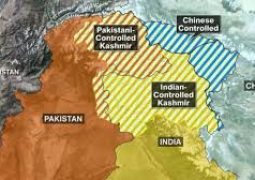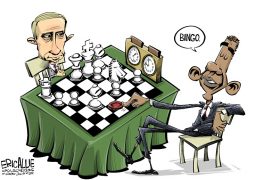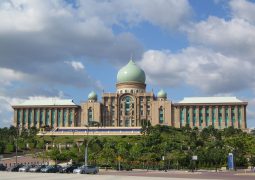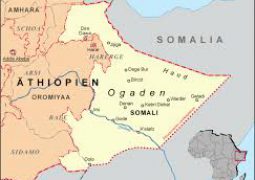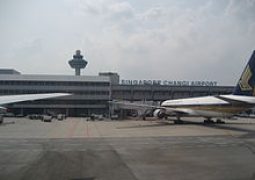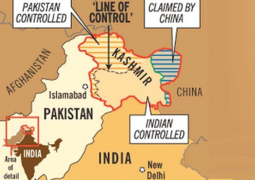The Kashmiri politician who quit civil servant job over killings Shah Faesal resigned as India’s civil servant in January and has rallied in Kashmir, promising he will bid for peace.
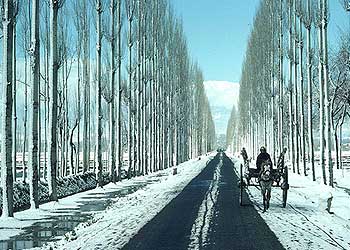
By Aijaz Nazir
08/02/2019
![Shah Faesal held his first public rally in his hometown, Kupwara [Sameer Mushtaq/Al Jazeera]](https://www.aljazeera.com/mritems/imagecache/mbdxxlarge/mritems/Images/2019/2/7/33fdf965a00047709e29fe4ff0b988a8_18.jpg)
Srinagar, Indian-administered Kashmir –On Monday, people gathered in the snow to listen to Shah Faesal in Kupwara, the northernmost district of Indian-administered Kashmir.
The crowd was large for a mainstream politician’s rally.
Weeks earlier, Faesal quit the Indian civil service citing unabated killings of Kashmiris and the lack of credible political outreach from New Delhi to Kashmir.
In 2010, he had topped the prestigious civil services entrance exam – the first Kashmiri to achieve the feat – inspiring other young people in the Muslim-majority region to pursue a similar path.
He was projected by India as a role model and viewed in sharp contrast with the slain rebel commander Burhan Wani.
However, over the past few years, Faesal’s public statements had given a sense of his growing disillusionment with the Indian government.
He was outspoken on social media and had written columns in newspapers, which had seen him disciplined by the government, for violating the civil services’ rules.
He resigned on January 9.
‘Fire in my heart’
At the rally in Kupwara, Faesal talked about the nepotism, corruption and the poor governance that had afflicted the state. He also spoke on the Kashmiri people’s sacrifice for political rights.
“What I have witnessed in the last 10 years as a senior government officer, there was a fire in my heart in these years.
“The injustice I have witnessed, I used to feel helpless most of the time. I was not able to speak out at that time and was looking for the opportunity where I could serve and talk for people of Kashmir,” he told the crowd.
Some attendees compared Faesal to Sheikh Abdullah and chanted: “Whatever Faesal does, we are with him.”
Abdullah was the founding leader of the Jammu and Kashmir National Conference (NC), one of the main political parties of Kashmir, and was known as the “lion of Kashmir”. People regarded him as their liberator.
Since 1951, the NC mostly ruled Indian-administered Kashmir until 2002. Its competition comes from the Peoples Democratic Party (PDP), founded by late Mufti Mohammed Sayeed in 1999.
These two regional parties have dominated the state’s politics.
But the PDP was impacted as its partnership with the right-wing Bharatiya Janata Party (BJP) angered Kashmiris, with many accusing the party of making the region vulnerable to the BJP’s political ambitions.
The end of the PDP-BJP partnership last year calmed PDP supporters to an extent. However, rising “counterinsurgency” operations by Indian security forces against local rebels have led to extensive violence, making 2018 the bloodiest year for Kashmir in several years.
It is in these volatile circumstances that Indian-administered Kashmir will have state assembly and national elections, expected in April this year.
“What have elections produced so far?” said Siddiq Wahid, former vice chancellor at the Islamic University of Science and Technology.
“The experience of Kashmiri people with electoral politics is not very good. So the mood is sceptical,” he told Al Jazeera.
“And while there has been a trust deficit between Kashmir and India all along, the responsibility to change the current situation lies with the mainstream parties. Can and will they challenge India to the extent that it needs to be challenged?”
Faesal’s entry in politics in this season could be viewed as a litmus test. Is there space for mainstream politics, beyond the NC and the PDP?
The Kupwara district has seen the rise of another politician – Sajjad Lone of the People’s Conference.
Lone joined hands with the BJP, a move criticised by several Kashmiris. Therefore, many see Faesal as a new candidate to connect with common Kashmiris, especially the youth.
“In the absence of any political outreach, we need someone who we can trust,” said Nasir Hussain from north Kashmir, who is preparing to apply to the civil service.
“I have met him many times. He has a humble personality and like other young boys, I too was astonished to see him coming into politics … Something positive is going to come.”
Though Faesal attributed his resignation to the killings of Kashmiris, he made it clear he would not join separatists.
“The escalation in violence in Kashmir was the result of constriction of political spaces over the last couple of decades,” Faesal told Al Jazeera.
“In recent times, this fresh spate of killings has risen because of the … siege [environment] that we see in the valley.
“Since legitimate means of expression were blocked for youth, other means of expression were adopted.”
Faesal hopes to enlarge the political space in Kashmir by starting the peace process and bringing all parties to the table.
However, Noor Ahmad Baba, a Kashmiri political expert, urged caution.
“I am still not that clear on his politics, I don’t think that as an individual he can make much difference in the complex political scenario of Kashmir in terms of broadening the political space,” he told Al Jazeera.
“I would rather wait to see how he shapes his politics and [see if] it is going to be different from the current choices.”
- Previous Russia says ready for talks with Netherlands on downed MH17 flight
- Next Al-Jazeera: former PetroSaudi employee is of the leakers of IMDB case



